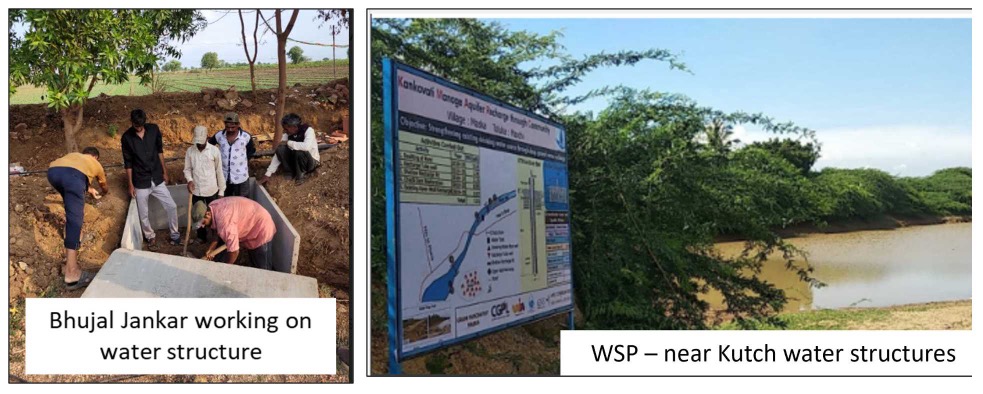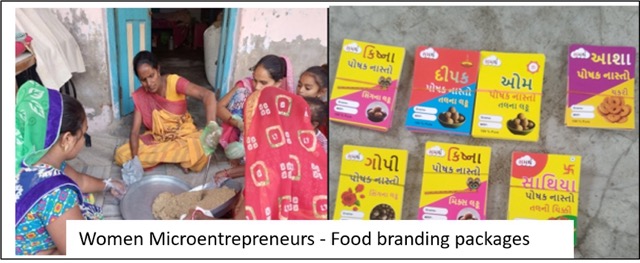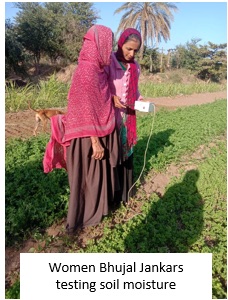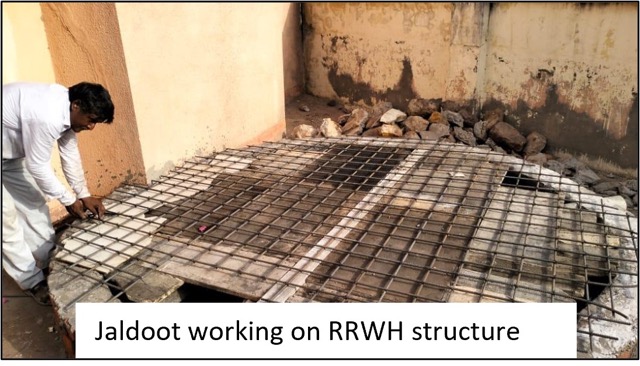Micro-entrepreneurship for Sustainable Social Impact
Author – WIN Foundation
Introduction:
Tens of billions of dollars as well as human resources have been spent over last several decades to reduce poverty, solve critical problems in health, water, and improve quality of life. However, the progress has been far less than desired.
In the book, “The Prosperity Paradox”, the late Harvard Professor Clayton Christensen, the guru of disruptive innovation, showed, along with his co-authors, how solutions creating local market at bottom of the pyramid, have been more effective in moving the needle faster and more efficiently towards social goals in society and nations, as compared to aid handouts and subsidies. Successes like MPaisa in Kenya, Grameen Bank in Bangladesh and several microfinance initiatives in India show ample evidence, as do failures of many large aid programs in bringing about sustainable change.

Even more important, for quality of life, is the micro-entrepreneurship at grassroots catering to public / social goods and services for communities, particularly public services like health, water, energy, education and so on. The pre-colonial Indian economy was estimated at 15-20% of world’s GDP. While the goods produced, like textiles, ships, steel, by Indian entrepreneurs were world renowned, local services for health, water structures, basic education, evolved over centuries, and provided by locally skilled “experts”, were the bedrock of rural life and economic prosperity. In each domain, expertise was carried over generations within families, providing high quality and reliable services, over centuries, thus providing livelihoods and high quality of services to villagers.
E.g. Our water structures like “Vavs” in Gujarat, the ancient water storage structures in Dholavira in the Harrapan times, show high precision and quality structures.
Today, India has achieved substantial growth. However, our rural and tribal areas suffer not just from lack of income and employment, but poor civic services in critical areas of health, water, energy etc., leading to poor quality of life. Several projects demonstrate high potential of micro-entrepreneurship models in each of these domains for sustainable development.
WIN Foundation supports innovations for sustainable social impact in its domains of (i) water and sanitation and (ii) mother and child health. It brings innovative products and approaches, by bringing multiple stakeholders together, including NGOs, premier institutions, startups, and other innovation ecosystem players.
This is combined with empowerment and skilling of the local communities. Local talented young men and women are trained in skills, technology and organizing work and projects, to carry out interventions for impact, creating livelihoods and improving social / public services and quality of life.
E.g. (i) In Water and Sanitation, water recharge structures, roof rain water harvesting systems, agriculture and water data collection and analysis etc. Microentrepreneurship models are being implemented to enable the trained local youth to achieve dignified career, respect and sustainability. (ii) Similarly in health, WIN Foundation supports several projects involving development of women micro-entrepreneurs for nutritious food products, to market the products along with a message of healthy diet among communities.
Challenges for microentrepreneurship:
If the potential for such microentrepreneurship for sustainable impact is known, then what are the challenges in scaling up this approach across the country? Based on the experience in our projects, we share the following, with few suggestions to overcome them:
- i) Self-confidence and Trust: Communities need to build self-confidence in themselves, and trust with their partners, to adopt the path of self reliance for their public needs like water and health, as against 100% reliance on the government for all such services. The typically “free” or “low cost” “government schemes/solutions, are often inadequate, inconsistent, or of poor quality, imposing a high cost on the community. E.g. Poor water bodies management results in poor water quality, shortages in summer, in turn resulting in health problems. Fortunately, many NGOs have worked closely with communities to build such trust. Further, NGO staff has to be oriented to understand the need to carry the message of skilling, microentrepreneurship as a solution, as against the standard charity activities or government schemes and freebies as the solution. Even when the government provides funds or basic infrastructure, local microentrepreneurship can help maintain such infrastructure and related services, to get maximum out of it. The community has to be convinced to get involved, take ownership, and support their own young men and women to get skills and provide high quality and reliable services as microentrepreneurs.
- ii) Localised Customer-focused Solutions:
Microentrepreneurs have to develop customized solutions to meet dynamic local customer needs. This requires (i) technical skilling in production of goods or provision of services, and (ii) understanding marketing concepts, to understand varying customer needs and adapt offerings, with effective marketing. This also requires bringing out the innate leadership skills of the microentrepreneurs, giving them confidence in their abilities, and encouraging them to experiment and improvise along their journey. Often, well meaning NGOs train microentrepreneurs to only produce goods, with little or no marketing and leadership training. This restricts microentrepreneurs from thinking further about understanding customer needs and long term growth. WIN engages microentrepreneurship training experts to train and handhold microentrepreneurs, with support of NGO staff, over 1-3 years. The NGO and microentrepreneurship expert also help evolve new viable business models, through experimentation.

iii) Understand and adopt technologies, processes, and update knowledge regularly to meet customer and community needs:
 Products and services: Even the rural population is exposed to modern products, and aspires to benefit from such products. Microentrepreneurs have to be trained to scan and adopt new technologies and products from time to time. Fortunately, a lot of affordable technologies are being developed by startups and companies, available for use by local microentrepreneurs to offer better services. E.g. Field usable Soil moisture, soil testing, water testing equipment at low cost, allow the local micro-entrepreneurs to offer services to support smart farming even to marginal farmers. WIN Foundations, through multi-stakeholder collaboration, involving NGOs, startups, institutions, etc. has helped bring affordable state of the art products, bringing products from over 10 startups to the communities.
Products and services: Even the rural population is exposed to modern products, and aspires to benefit from such products. Microentrepreneurs have to be trained to scan and adopt new technologies and products from time to time. Fortunately, a lot of affordable technologies are being developed by startups and companies, available for use by local microentrepreneurs to offer better services. E.g. Field usable Soil moisture, soil testing, water testing equipment at low cost, allow the local micro-entrepreneurs to offer services to support smart farming even to marginal farmers. WIN Foundations, through multi-stakeholder collaboration, involving NGOs, startups, institutions, etc. has helped bring affordable state of the art products, bringing products from over 10 startups to the communities.- E-business: to help microentrepreneurs become efficient and widen market reach. Here too, modern IT and Telecom solutions are available at very low cost or no cost. This requires identification of such affordable means and then training microentrepreneurs to implement them. This too requires bringing expert trainers and NGOs together. Eg. WIN Foundation recently carried out a multi-partner, multi-location month-long whatsapp for business training for around 35 microentrepreneurs, predominantly women, who implemented their online pages and catalogues right during the training and started generating businesses.
- Continued learning: We need to build a learning attitude among the microentrepreneurs for their continued learning and update, and support them with learning opportunities, including self learning, online learning etc. E.g. WIN Foundation supports learning through its online skillingtoWIN.org platform.
- iv) Funding support: Microentrepreneurs require funding support, just like that available in startup world, over a period of time, alongwith development of their own financial expertise to enable them to move towards financial self reliance. This requires creation of seed funds, soft loans, cooperative credit society structures, etc., which provide support and also generate financial accountability. There are several priority sector lending schemes also available for small businesses including those by women.
- v) Scaling and Replication: While many pilots have shown excellent results, scaling and replicating solutions across whole districts, state, country remain the biggest challenge. Typical solutions tried for scale-up are skilling at mass scale, financial support schemes by government However, these have had limited success and often lose momentum, as they often face new unforeseen problems in new locations or new situations. A key requirement, missed out by most scaling efforts, is that of local leadership. Success in pilots invariably involved local leadership displayed by experts, local NGO staff, few local community leaders etc, which is critical to overcome unforeseen hurdles faced along the way. Scaling efforts miss out on this leadership aspect almost totally, leading to lack of success in scaling up. Hence, to complement the massification of skilling, we also need to create a simultaneous system to identify leadership potential at local levels, and then empower the local leaders to evolve, through practice, local solutions, and solve local problems and hurdles, while replicating successful models from elsewhere. Such local leaders typically also help many other microentrepreneurs around them, thus bringing true multiplier effect. WIN Foundation is engaged with its NGO partners to brainstorm and implement such leadership development process, and is keen to explore more stakeholder relationships for this.

Summary of WIN Foundation projects which support microentrepreneurship:
- Water Conservation, where local youth, men and women, are trained as Bhujal Janjkars, and lead interventions by preparing water security plans and help implement water recharge structures, smart farming practices using affordable equipment and solutions, women group formation and practices like kitchen gardens etc. Thus these Bhujal Jankar act as change agents, and bring sustainable improvement in quality of life at village level.
- Mother and Child Nutrition, where women microentrepreneurs are trained for producing and selling nutritious food products to community, along with support for central kitchen, seed funds, community events etc. These women microentrepreneurs take the message of nutrition to mothers and others in communities, and market healthy food products, affordable to the community and finally make a positive impact to tackle malnutrition.
- Horizontal initiatives across domains:
- Whatsapp for Business training for grassroots micro entrepreneurs, from multiple domains – to enable them to tap into e-commerce even with their limited education.
- Online skilling platform – skillingtoWIN.org, enabling expansion of skilling.
Impact:
- 25+ of Bhujal Jankars
- 40+ Number of Women microentrepreneurs for food
- 35+ Number of microentrepreneurs who implemented e-business and started getting sales through e-business channel
Future goals:
- Support microentrepreneurs reach stability and maturity, and put them on growth path with greater customer service and financial profitability
- Identify leaders among above groups and motivate them to act as coaches for more microentrepreneurs
- Scale and replicate in other locations – through training and local leadership development
- Build multi-stakeholder system to support microentrepreneurs.
WIN Foundation would love to engage with other organizations for supporting grassroot microentrepreneurship. If interested, write to us at info@winfoundations.org.

